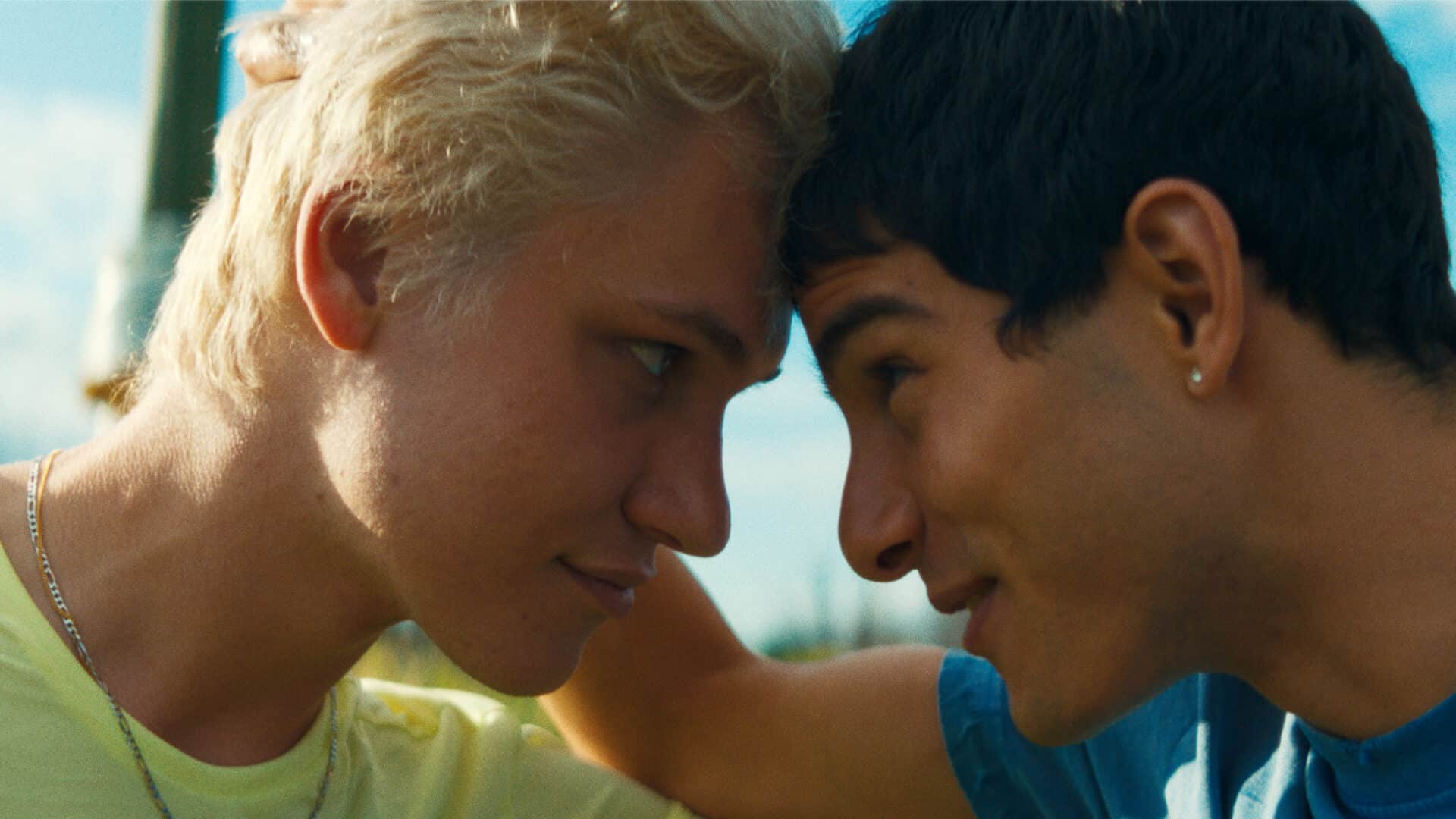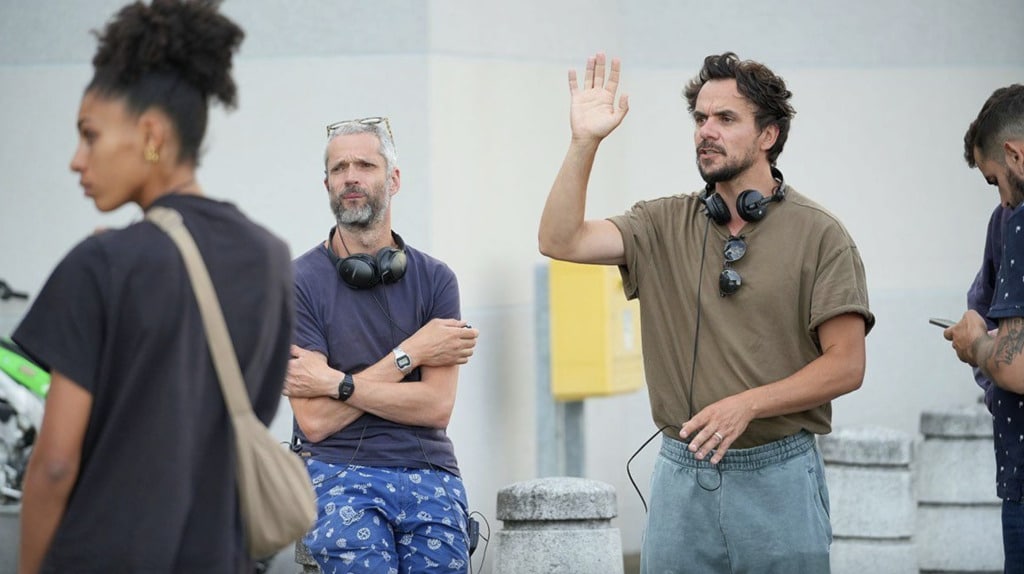
French filmmaker Antoine Chevrollier’s feature debut La Pampa (Block Pass) tore me to shreds. My reaction was undoubtedly amplified by exhaustion after days chasing the party on the Croisette, but mostly it was down to Chevrollier’s beautiful, devastating filmmaking. The coming-of-age drama La Pampa marks Chevrollier’s transition from television (The Bureau, Ossekine) to film, while newcomers Sayyid El Alami and Amaury Foucher, who play the lead characters of Willy and Jojo, ooze star-quality, a welcome discovery for any casting director. Remarkably, this is also Foucher’s on-screen debut.
Like when I bet on a horse (rarely) I chose it for the name: La Pampa. The title’s gravitas immediately pulled me in. From the moment I walked into the Miramar I knew something special was about to happen. Word of mouth has clearly been strong as the cinema was packed out and an intoxicating energy occupied the air. With a script penned by Chevrollier, Bérénice Bocquillon and Faïza Guène, La Pampa is the story of teenage best friends Willy and Jojo who live in a small town in the west of France called Longué-Jumelles. They are united by their love of motocross and La Pampa refers to the track that their fathers built together. While Willy is sensitive and self-aware, Jojo is the more courageous and adventurous of the two, but both are spirited and lovable.
The film opens deep in the French countryside, where a group of teenage boys are getting psyched for Jojo to ride dangerously over a lethal crossing, which he succeeds at, narrowly averting fatality. This is followed by a race on the track which Jojo and Willy partake in, with Jojo winning and making his father—equal parts supporting and controlling—a very proud man. The group of lads go out drinking after the race with some girls and Willy takes a fancy to a girl visiting from Angers. By portraying teenage ecstasy, careless freedom and the elation of sneaking out with friends after hours—they break into a local swimming pool— the film is true to what it feels like to live in a small town at that age. The thrill of escape, letting loose and the appeal of intoxication. What is more is that Chevrollier clearly understands his characters, accurately representing their generation without it feeling try-hard and was trusted by his actors to get up close to them.

Youthful playfulness and teenage angst is swapped in for gut-wrenching drama when Willy finds Jojo having sex with their motocross trainer, a married man with a wife and kid on the way. The betrayal Willy feels when he discovers closeted Jojo has been keeping this secret is only the beginning of the tragedy that will ensue. The fury and homophobia posited by Jojo’s family when a composing video of a sexual encounter goes viral results in tragic consequences.
Cinematographer Benjamin Roux does a sterling job and the sunlight-dappled moving images scream youth, innocence and boyhood. Chevrollier sets up the coming-of-age story with ease before moving gradually into drama, deftly titillating between unbridled teenage freedom and eventual human tragedy. There are other complex storylines throughout which are intertwined masterfully, such as fatherless Jojo’s relationship with his mother and stepfather or the beautiful early-stages of her relationship with the girl from Angers. The obvious comparison is Lukas Dhont’s Close (2022), but there are glimmers of Pawel Pawlikowski’s My Summer of Love (2004) and Nicolas Mathieu’s Prix Goncourt winning novel And Their Children After Them (2018), upon which filming wrapped at the end of last year for brothers Ludovic Boukherma and Zoran Boukherma. They are in good company with La Pampa, a sensitive, spirited and quietly profound film that establishes Chevrollier as a promising filmmaker. Teenage boys are rarely the main focus in film and La Pampa is a persuasive argument to see more of them on our screens.
You can read all our other 2024 Cannes coverage here.





